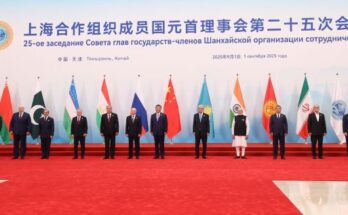
Team News Riveting
The regional politics and the dilemma of the Imran Khan Government had added fragrance to the Bastmati rice cultivated in India.
The Indian Government’s move to get the Geographical Indication (GI) tag from the European Union (EU) comes amidst these developments. According to EU rules, competing nations have three months’ time to contest the claim.
With over two weeks having already passed after the notification of Indian claim, the neighbouring country has less than 10 weeks now to respond. The problem for the Imran Khan-led government is that it has not assigned any geographical territory for its basmati rice cultivation.
Basmati rice in Pakistan is grown mainly in its Punjab province and its cultivation has extended to Sindh and Balochistan provinces. Within Punjab, the traditional areas are lagging behind in production.
The cultivation of basmati rice in provinces other than Pakistan’s Punjab has diluted the exclusivity of the fragrant rice’s geographical territory. If Pakistan takes measures to demarcate the geographical exclusivity of the rice, then it would be up against regional politics from the Sindh politicians, in particular.
Thus, it would not be easy for the Pakistani authorities to rush through the process of demarcating areas for its basmati cultivation within the short span.
Pakistan has to prove to the EU that it has been maintaining exclusivity of its regions cultivating basmati. This also means hours will have to be spent on talks and negotiations.
But given the fact that the EU is upset with China and its allies including Pakistan following COVID-19 outbreak since it holds Beijing responsible for this, the Imran Khan government has the daunting task of convincing it.
The Narendra Modi government has made a swift move to protect the exclusivity of basmati rice grown in the country in the global export market. It had applied to the European Union (EU) for exclusive Geographical Indication (GI) tag for the fragrant, long grain rice, last month.
A GI tag for basmati would mean it is exclusively grown in India or parts of the country.
Though basmati is grown in various parts of India, the GI tag for the fragrant, long-grain rice has been assigned to the variety grown only in states such as Himachal Pradesh, Punjab, Haryana, Uttarakhand, outskirts of Delhi, western Uttar Pradesh and parts of Jammu and Kashmir.
In providing the GI tag cover to its basmati rice, the Indian government has resisted attempts by Madhya Pradesh to get a similar tag for a fragrant variety grown in the state. The MP government even moved court but has not been successful until now.
India produces about 7.5 million tonnes (mt) of basmati rice and exports about 4.5 mt annually. During 2019-20, India earned Rs 34,000 crore shipping 4.45 mt basmati rice.



